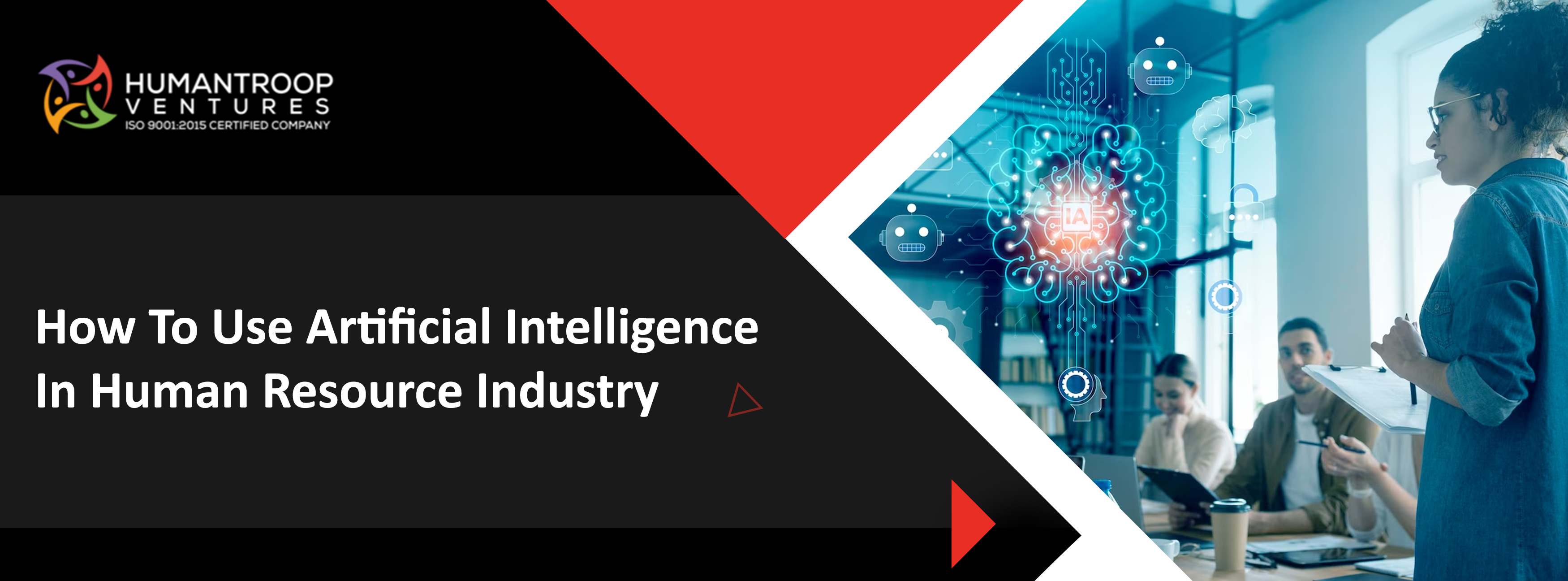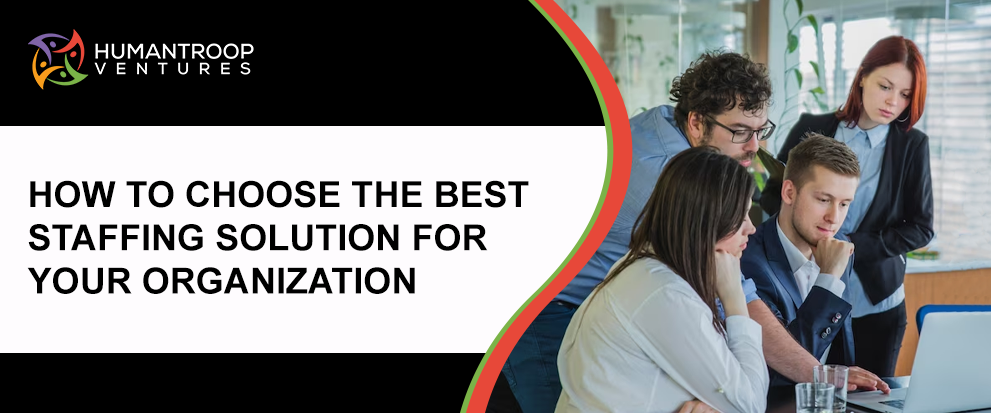
How To Use Artificial Intelligence In Human Resource Industry
Employee trends for companies are greatly influenced by the human resources (HR) sector. HR specialists design a company’s people-centric strategy, emphasizing organizational growth, employee engagement, and talent acquisition. The HR sector has developed to meet the changing demands of the modern workplace as companies have come to understand the importance of their human resources.
All of us believe that artificial intelligence (AI) will replace humans in the workforce since it now controls every industry. And while that is partially true, it is not entirely accurate. Talent and skills are what matter in every job, and AI won’t take away either of them. All we need to do is apply AI appropriately and correctly.
Many of you are probably wondering whether artificial intelligence (AI) has a role in human resource management (HRM) or how the HR industry can use AI. People’s consumption of AI is increasing excessively. AI has taken the place of numerous items, and people are using it to write press releases, blogs, and news articles, as well as design websites and social media creatives. In addition, it may be used to write codes. Although there are many uses of artificial intelligence, we will focus on its use in the human resource management sector in this article. We shall cover every possible point that relates to HRM. Shall we get started now?
Use Of AI In Hiring and Acquiring Talent:
HR can use it for AI-based recruiting. Select applicants who most closely match job requirements by using AI algorithms to scan and evaluate resumes. As well as chatbots for First Contact. Use chatbots to screen candidates, respond to inquiries, and collect initial information. Automated onboarding procedures can be done by artificial intelligence (AI). AI can automate paperwork, speed up the onboarding process, and provide new hires with the information they need.
How Can You Use AI For the Engagement of Employees:
Use artificial intelligence (AI) to analyze employee data in order to predict and improve engagement levels and determine the elements that influence job satisfaction or discontent. Personalized Learning Paths, AI can suggest individual learning and growth routes for staff members according to their positions, competencies, and professional objectives.
Handling Performance With The Help Of AI :
AI solutions can deliver real-time feedback, which permits ongoing performance monitoring and prompt interventions not only this but we can also see data-driven Performance Analytics, you can apply AI to analyze performance data, assisting in the objective assessment of performance and highlighting areas in need of development.
Use OF AI In Employee Planning :
Engagement Of Employees: By forecasting future employee requirements, employee turnover, and skill shortages, AI-driven data can help with workforce planning. You can give employees support by doing Risk Prediction by examining multiple variables, AI algorithms can identify which employees are most likely to leave, enabling proactive recruitment strategies. Personalized Acknowledgment you can do it by Applying AI to offer rewards and praise that are specific to each employee’s achievements and preferences.
Use Of Analytics In HR Industry:
Data insights: AI systems are capable of analyzing huge HR records to gather insightful information that helps in strategic decision-making. Use predictive analytics in HR to forecast trends and identify possible problems.
Well-Being Of Employees :
Health Monitoring: Use AI-powered solutions to keep an eye on workers’ well-being, providing information on stress levels and wellness suggestions.
Chatbots for Help with HR:
Automated HR Support: Employ chatbots to respond quickly and accurately to regular HR questions from staff members. AI can assist in locating and removing prejudices in hiring and performance review procedures, promoting a more inclusive and varied work environment.
Other Benefits of Using AI in HR Management:
Efficiency: Streamlines repetitive tasks, saving time for HR professionals.
Accuracy: Lowers human mistakes in data analysis and resume screening.
Cost savings: Process automation reduces operating expenses.
Data-Driven Decisions: Offers insights obtained from data to support strategic decision-making.
Enhanced Experience for Employees: Provides individualized support and interactions to improve the overall experience for employees.
Organizations may increase productivity, make better decisions, and give workers a more interesting and productive work environment by implementing AI into HR processes. Artificial Intelligence (AI) as well as data analytics especially have made technology an essential aspect of HR operations. Improving hiring efficiency, offering workforce planning insights, and enabling data-driven decision-makinghas been done throgh AI. The advancement of HR technology has made it possible to automate repetitive processes, freeing up workers in HR to concentrate on strategic projects that enhance organizational performance.
The HR sector has a strong focus on the growth and well-being of employees, with a special focus on building nurturing work cultures that foster talent, give mental health priority, and encourage lifelong learning. This change is a reflection of a wider understanding of how HR procedures affect employee retention, happiness, and ultimately the performance of the company.






